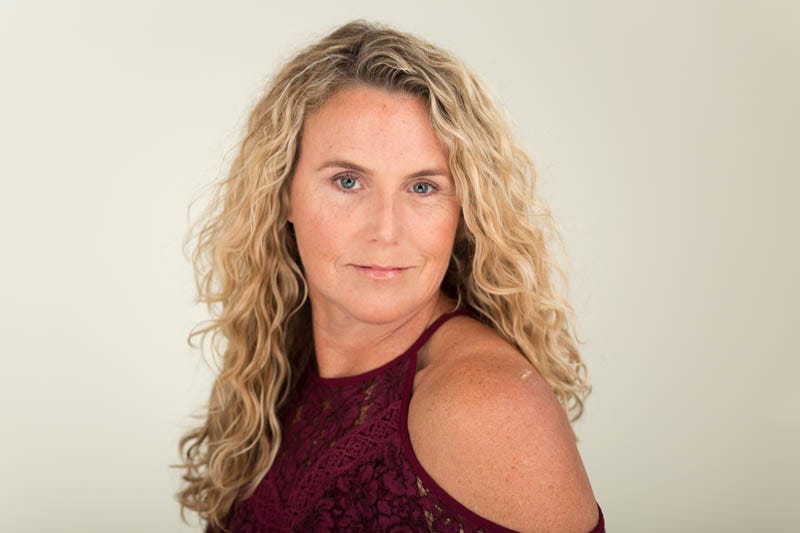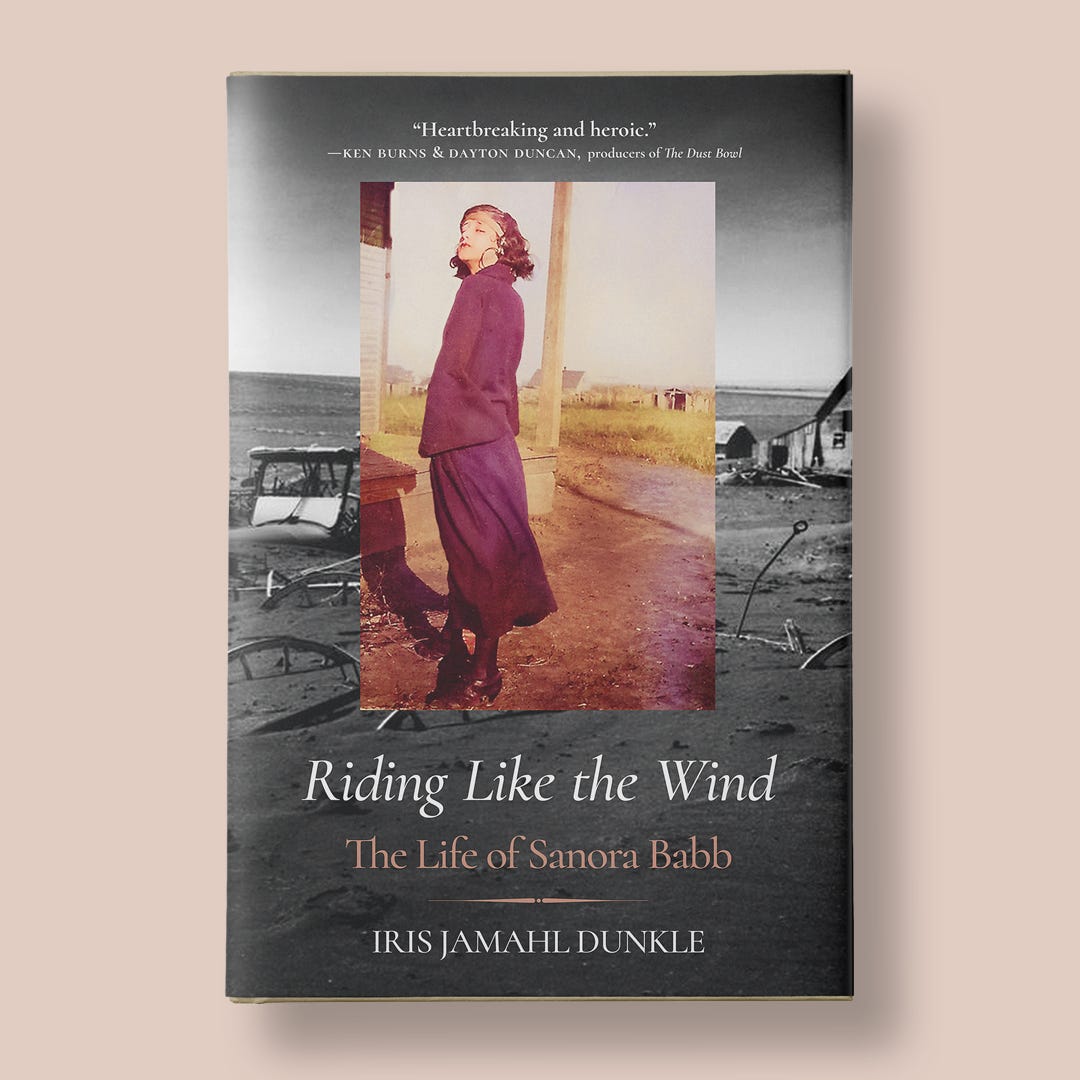Discovering Lost Voices
Sebastopol poet and biographer Iris Jamahl Dunkle gives voice to those lost to history
Somewhere along her path to becoming a published poet, teacher, Sonoma County poet laureate emerita and non-fiction biographer, Iris Jamahl Dunkle found herself in a quest to discover “the lost voices” of women in literature and history.
After writing her biography, Charmian Kittredge London: Trailblazer, Author, Adventurer, in 2020, Dunkle launched a weekly Substack blog last year called “Finding Lost Voices,” which is dedicated to “bringing back the voices of those who have been forgotten or misremembered.” Her archive of “lost voices” now numbers in the dozens.
Dunkle has recently published her second full-length biography on the life and words of Sanora Babb, the woman whose research and writing laid the groundwork (and more) for many of the characters and scenes that made John Steinbeck’s “The Grapes of Wrath” the literary masterpiece we’ve all read in school and college.
The Sebastopol area author is now in the middle of a nationwide tour of readings and appearances to promote her new biography, Riding Like the Wind: The Life of Sanora Babb. (See her local speaking engagements at the end of this article.) She has been drawing enthusiastic audiences on tour, and her book on Babb has been widely reviewed and applauded, including in the New York Times, Washington Post and elsewhere.
“I’ve found a new vein of feminist activism, I think,” Dunkle told the Sebastopol Times. Speaking about the women and other literary scholars she’s been meeting in her travels and research assignments, she says she’s found “a huge community of people doing this work.”
Dunkle’s self-assigned mission of finding and uncovering the lost voices of women like Sanora Babb and Charmian Kittredge (who were overshadowed respectively by John Steinbeck and Jack London) is about changing written history, but her research has prompted changes in the material world as well. When Dunkle’s book on Kittredge was published, the historians at Jack London State Park here in Sonoma County changed its permanent exhibits to include new mentions, writings and artifacts belonging to Kittredge, to more faithfully depict the primary influences Kittredge had on much of London’s writing. Similar changes may be coming soon to the National Steinbeck Center in Salinas, where Dunkle will be doing a talk and reading on May 17 on the influence of Babb on Steinbeck’s work.
Sanora Babb was a Dust Bowl survivor from eastern Colorado who took a job with the Farm Security Administration (FSA) and worked in the farmworker and migrant camps of Depression-era California. As an aspiring writer, Babb collected notes and personal interviews that she was organizing into a novel. Her boss at the FSA, Tom Collins, convinced Babb to share her notes with famed author John Steinbeck who was also working on a book about migrants from the Dust Bowl.
Babb had sent off four chapters of her novel-in-progress to Random House publishers. Her manuscript was titled Whose Names Are Unknown, and Random House’s Bennett Cerf agreed to publish it. But Steinbeck, the more famous novelist, was also just completing his book, The Grapes of Wrath, and the publishing house put his book into production while shelving their agreement with Babb.
Dunkle’s research in her new book uncovers how Collins and Steinbeck conspired to “borrow” Babb’s notes and profiles of the poor migrant families and camp inhabitants. Dunkle proved how long passages of Babb’s writings appear in Steinbeck’s classic novel.
Since then, in her weekly “Lost Voices” Substack blog, Dunkle has profiled the tragic life and death of Joan Vollmer, the wife of Beat writer William S. Burroughs, whom he accidentally shot and killed; the “misappropriation” of Mary Hallock Foote’s writings by Wallace Stegner in his 1971 Pulitzer Prize-winning novel, Angle of Repose; and the unheralded contributions by Alice Eastwood in her biology texts on the flora and fauna of Northern California. Dunkle also recently completed a deeply-researched profile of Eileen Blair (1905-1945), who partnered with her husband George Orwell to write Animal Farm, without receiving credit. (Discover the rest of Dunkle’s Lost Voices profiles here.)
“Obviously, society was different back then in how a woman’s role or participation was appreciated or acknowledged,” Dunkle said in our recent interview while admitting she wasn’t sure how much improvement has been made since. Dunkle, who earned her MFA in poetry at New York University and her PhD in American Literature from Case Western Reserve University, currently teaches several writing and literature classes at U.C. Davis and Dominican University in Marin County.
Dunkle is now working on a new book called Strong, about the history of strong-bodied women from the late 1880s to the present. A large part of the book will be autographical, telling Dunkle’s story of growing up as a strong-bodied female and as a competitive swimmer from an early age at Sebastopol’s Ives Pool and for the Santa Rosa Neptunes swim team.
Dunkle is a graduate of Santa Rosa’s Ursuline High School and grew up in rural western Sonoma County between Sebastopol and Freestone with “hippie parents.” She lives with her husband and children in West County.
Poetry matters
Dunkle served as Sonoma County’s Poet Laureate in 2017-2018, during the devastating Tubbs Wildfire that killed 43 people and destroyed over 5,600 homes in Santa Rosa and nearby. While completing some official poet laureate duties like attending dedications or ribbon cuttings, Dunkle also got calls from fire victims.
“I never realized how much we need art when things start to fall apart,” she said. She said she got calls from business owners and others asking her if she could write or share a poem with groups of employees and others to help ease the sense of loss and grief that had engulfed much of Sonoma County during that time. “It made a difference,” she said. “I know. I saw it happen.”
Locals looking for more writings by Dunkle might choose to begin with her 2016 collection of poetry, There’s a Ghost in This Machine of Air. Her poems celebrate the pasts of Sebastopol and West County, including tributes to the Pomo, Wappos and Miwok natives and to the earliest European settlers and farmers.
“The first bite of a tangy Gravenstein apple or a stroll through the pastoral beauty of the Laguna de Santa Rosa might never be the same after one reads Iris Jamahl Dunkle’s new book of poetry,” wrote Ariana Reguzzoni in a Press Democrat book review in 2015. Dunkle has published three other collections of poetry.
Hear Iris Dunkle speak about her work at these local events
Dunkle will be appearing at three upcoming events in West County:
On Saturday, Feb. 22, from 5 pm to 6:30 pm, she will do a reading and talk on her Sanora Babb book at North Bay Letter Press Arts. Admission is free and registration is at https://www.northbayletterpressarts.org.
On Sunday, Feb. 23, from 10 am to 2 pm, Dunkle will lead a workshop at North Bay Letter Press Arts on the literary process of “erasure,” where an original text is marked, highlighted and decorated to produce a new text of poetry or other visual expression. Dunkle will show her erasure project based on a copy of Steinbeck’s The Grapes of Wrath. The Sunday workshop is limited to 10 participants and costs $135.
Next month, Dunkle will do a reading and talk at the Occidental Center for the Arts on Sunday, March 30, from 4 pm to 5:30 p.m. The event is free with pre-registration at occidentalcenterforthearts.org.
Her bibliography is available at www.irisjahmaldunkle.com, and here, again, is her Finding Lost Voices Substack.





Thank you, Rollie for this article on Iris! She is doing good important work! One correction: Yes, the reading on March 30th at OCA is free but NO pre-registration is required. Suze Pringle Cohan, Literary Chair, OCA. (cohanhaven@yahoo.com)